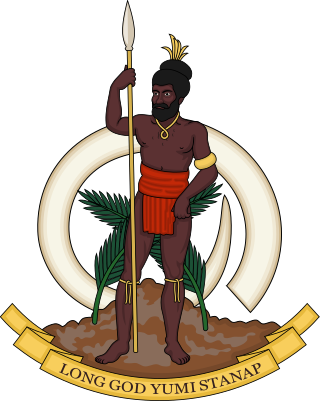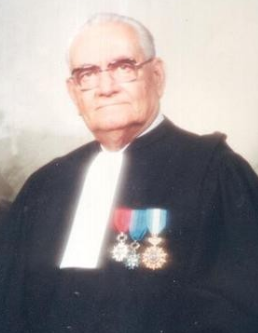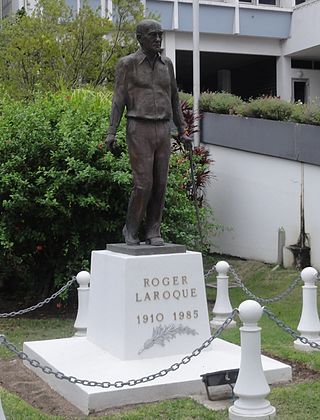Marie-Noëlle Thémereau is a French New Caledonian politician who served as the former president of the government of New Caledonia, an overseas territory of France in the Pacific Ocean about 1,210 km east of Australia. She has been a member of the loyalist Future Together party.
Henri Lafleur was a New Caledonian politician. A member of the Senate of France from 1959 until 1974, he sat as an Independent Republican.

General elections were held for the first time in the New Hebrides on 10 November 1975. The result was a victory for the New Hebrides National Party, which won 17 seats in the new Representative Assembly.
Legislative elections were held in New Caledonia in 1934 to elect half of the General Council. A first round was held on 14 October, with a second round on 28 October.
Legislative elections were held in New Caledonia in January 1945. The first round of voting was held on 7 January and the second round on 24 January.
Legislative elections were held in New Caledonia on 8 February 1953.
Henri Bonneaud was a New Caledonian businessman and politician.
Legislative elections were held in New Caledonia on 6 October 1957. The result was a victory for the Caledonian Union, which won 18 of the 30 seats.
Legislative elections were held in New Caledonia on 7 December 1958. The result was a victory for the Caledonian Union, which won 18 of the 30 seats.

General elections were held in the Territory of Papua and New Guinea on 18 March 1961. Indigenous members were elected for the first time, although on an indirect basis. The territory's first political party, the United Progress Party, won three seats.
Legislative elections were held in New Caledonia on 15 April 1962. The result was a victory for the Caledonian Union, which retained its majority in the Assembly.

General elections were held in the Territory of Papua and New Guinea between 15 February and 15 March 1964. They were the first elections in the territory held under universal suffrage. Voter turnout among enrolled voters was 65%.
James Louis Daly was a New Caledonian businessman and politician. He served as a member of the General Council from 1930 until 1940, and again from 1953 until 1957.
Legislative elections were held in New Caledonia on 9 July 1967. The result was a victory for the Caledonian Union, which won 22 of the 35 seats.

Legislative Council elections were held in the Cook Islands in 1947, the first after the establishment of the new legislature.
Legislative elections were held in New Caledonia on 10 September 1972. They had originally been scheduled for July, but were postponed by the French government. Anti-autonomist parties won 18 of the 35 seats, with the previously dominant Caledonian Union reduced from the 22 seats it won in 1967 to only 12.
Early legislative elections were held in New Caledonia on 1 July 1979 after the Government Council was dismissed by the French government and the High Commissioner dissolved the Assembly elected in 1977.

Elie Emile William Auguste Solier was a New Caledonian lawyer and politician. He was a member of the General Council from 1953 to 1957.
Early legislative elections were held in New Caledonia on 29 September 1985. They were called after the 1984 elections had been boycotted by the pro-independence Kanak and Socialist National Liberation Front (FLNKS) and were marred by violence that continued for several weeks after election day.

Roger Laroque was a New Caledonian businessman and politician. He served as mayor of Nouméa from 1953 to 1985 and as a member of the Territorial Assembly from 1972 to 1984.





